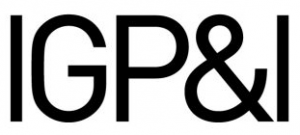Sanctions have resulted in an increased use of fraudulent cargo documents, where suppliers are trying to hide the true origin of the cargo. In this article we shed light on a concerning trend and advise our clients to exercise extra caution.

Falsified fertiliser documents - a concerning trend
Written by
Anders Engebretsen
Published 02 September 2024
Recently, we have noted an increase in fertilisers shipped from Russian ports that are said to have originated in another country, such as Uzbekistan. After closer investigation, however, it appears that many of these cargoes are in fact of Belarusian origin, meaning that they are a sanctioned cargo.
Falsifying the cargo origin
The Lithuanian centre for investigative journalism, Siena, published a report last year which concluded that “[w]hile Uzbekistan has a well-developed fertiliser industry, it is possible that the country is being used as a conduit to export sanctioned goods, including Belarusian fertilisers, to the European Union or third countries.”
The Belarusian Investigative Centre has said that it has obtained papers which confirm the same. This appears to be a trend that has developed since the implementation of sanctions on the Belarusian fertilizer industry, including the Belarusian sanctioned manufacturer Grodno Azot.
Source: Eurostat, via Belarusian Investigative Center
Transiting through Russia
Prior to 2022, Belarusian fertiliser exports were predominantly brought to market via Lithuanian ports. On 1 February 2022, however, Lithuania introduced a ban on the transit of Belarusian potash fertiliser via its territory and ports, in line with the sanctions imposed by the EU and the UK.
Belarus is landlocked so it seems exporters have been forced to look for allies to bring their fertilisers to the market. Although historically in competition with Belarus for such exports, Russia appears to be one such ally. In fact, Russia’s Transport Minister, Vitaly Savelyev, stated in June last year that the “transshipment of Belarusian potash fertilisers through Russian ports in 2023 could increase to 8.4 million tonnes from 3 million in 2022”, according to Interfax.
The Polar Journal has reported that Murmansk is building a port for Belarusian bulk cargo and that Belarusian fertiliser is being exported from the St. Petersburg port of Bronka. The Murmansk port is set for completion in December 2024.
Gard’s advice
We always recommend Members, clients and assureds to carry out due diligence in connection with any trade with which they are engaged. Now, with increasingly complex sanctions regimes, knowing the origin of the cargo is more important than ever.
If the trade involves shipment of fertilisers from a Russian port that is said to originate in another non-sanctioned country, Gard recommends extra caution and enhanced due diligence. Steps should be taken to establish the true origin of the cargo, evidenced by reliable and documentary proof.
Please also note that as part of Gard’s own due diligence process, we may ask for reliable and documentary proof of the cargo’s origin if a claim arises or if charging additional premium in connection with an ice or war breach call.



